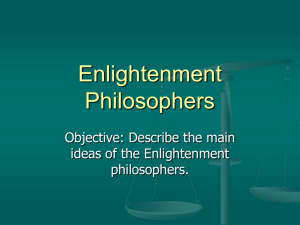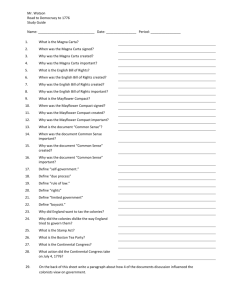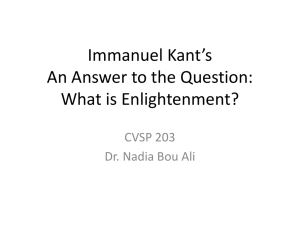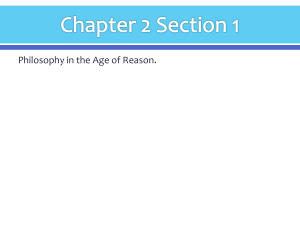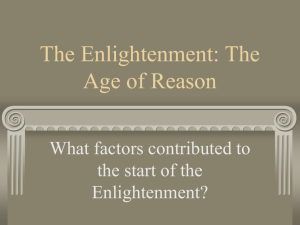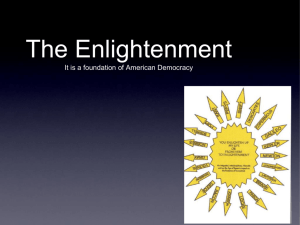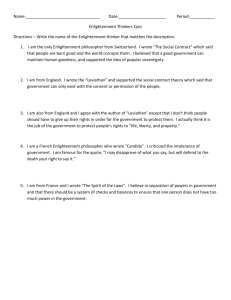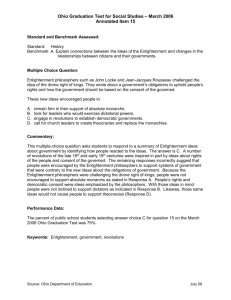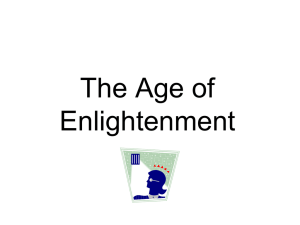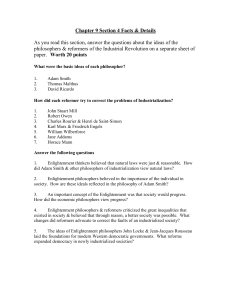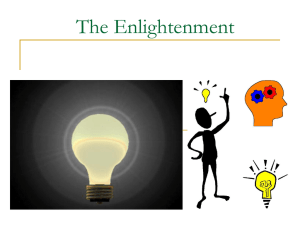Enlightenment Philosophers & American Law Worksheet
advertisement
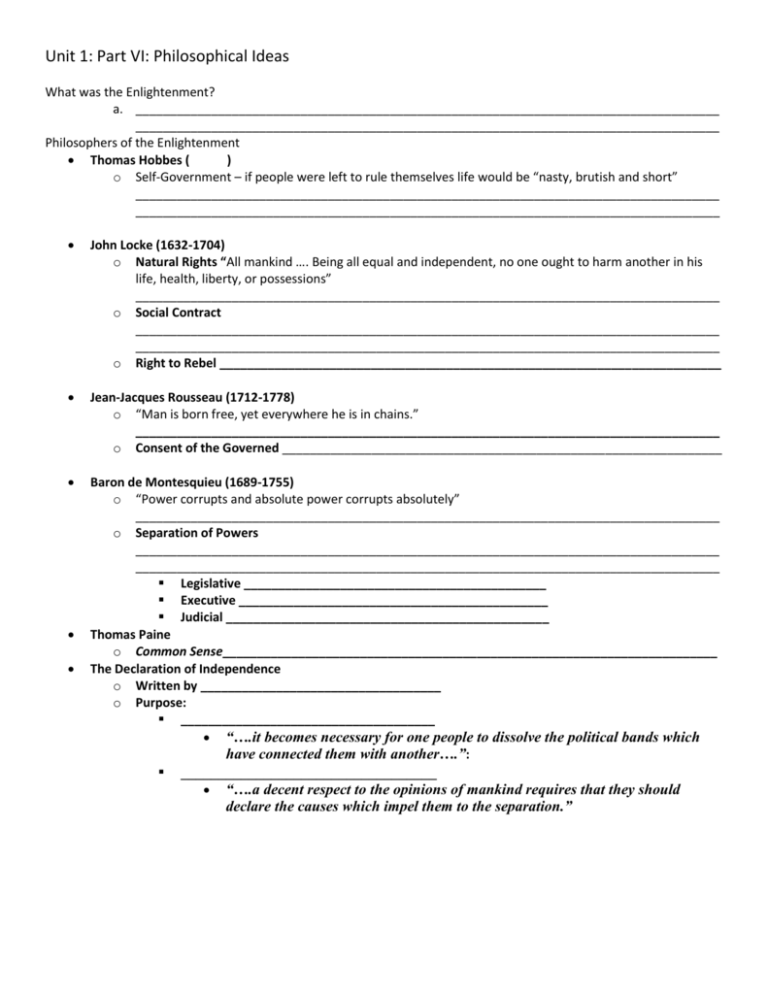
Unit 1: Part VI: Philosophical Ideas What was the Enlightenment? a. _____________________________________________________________________________________ _____________________________________________________________________________________ Philosophers of the Enlightenment Thomas Hobbes ( ) o Self-Government – if people were left to rule themselves life would be “nasty, brutish and short” _____________________________________________________________________________________ _____________________________________________________________________________________ John Locke (1632-1704) o Natural Rights “All mankind …. Being all equal and independent, no one ought to harm another in his life, health, liberty, or possessions” _____________________________________________________________________________________ o Social Contract _____________________________________________________________________________________ _____________________________________________________________________________________ o Right to Rebel _________________________________________________________________________ Jean-Jacques Rousseau (1712-1778) o “Man is born free, yet everywhere he is in chains.” _____________________________________________________________________________________ o Consent of the Governed ________________________________________________________________ Baron de Montesquieu (1689-1755) o “Power corrupts and absolute power corrupts absolutely” _____________________________________________________________________________________ o Separation of Powers _____________________________________________________________________________________ _____________________________________________________________________________________ Legislative ____________________________________________ Executive _____________________________________________ Judicial _______________________________________________ Thomas Paine o Common Sense________________________________________________________________________ The Declaration of Independence o Written by ___________________________________ o Purpose: _____________________________________ “….it becomes necessary for one people to dissolve the political bands which have connected them with another….”: __________________________________ “….a decent respect to the opinions of mankind requires that they should declare the causes which impel them to the separation.” Sources of American Law Cause Magna Carta (pg 33) Common Law (pg 34) Mayflower Compact (pg 36) Natural Rights (pg 34) Enlightenment English Bill of Rights (pg 34) Social Contract Theory (pg 35) Description Effect 1. Explain the reasoning behind the Magna Carta and what its impact was on the English citizens. 2. How are common law and social contract theory similar? 3. What freedom is protected by having separation of church and state? Why is this important? 4. List the philosophers who were a major part of the Enlightenment movement. 5. Why do you think the colonists felt the need to draw up the Mayflower Compact? Sources of American Law Pg 28 or 32
